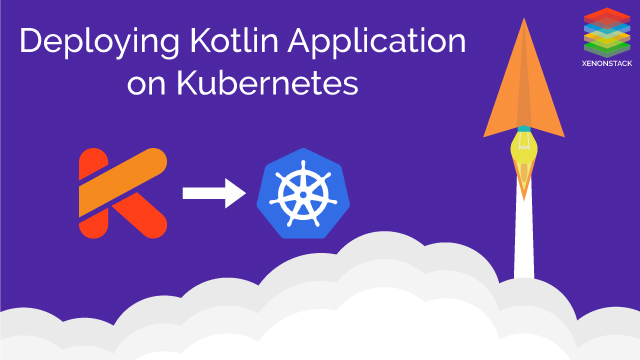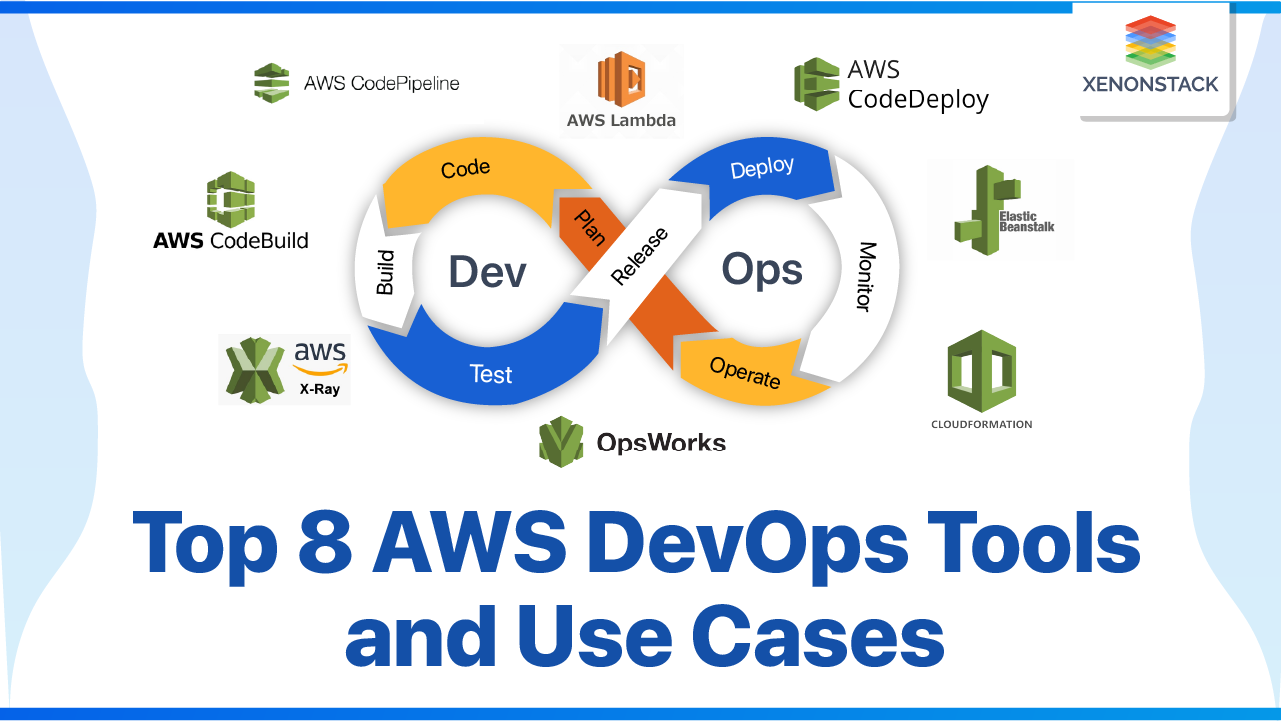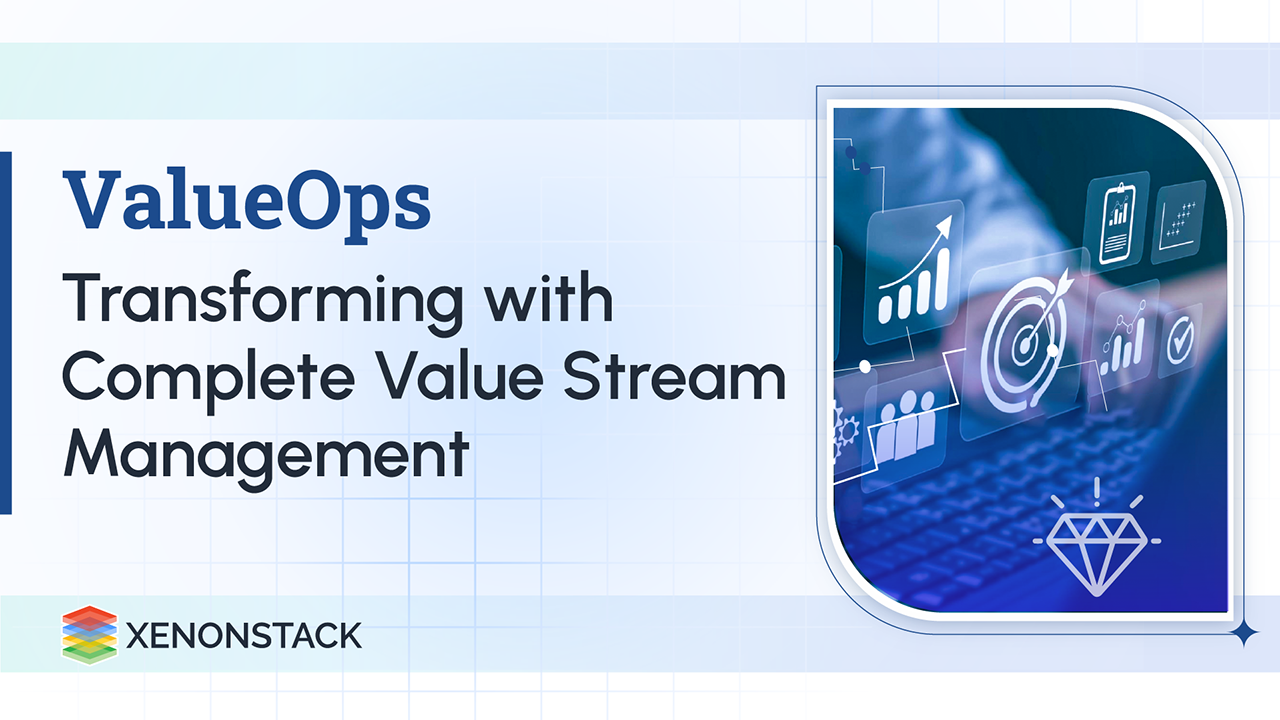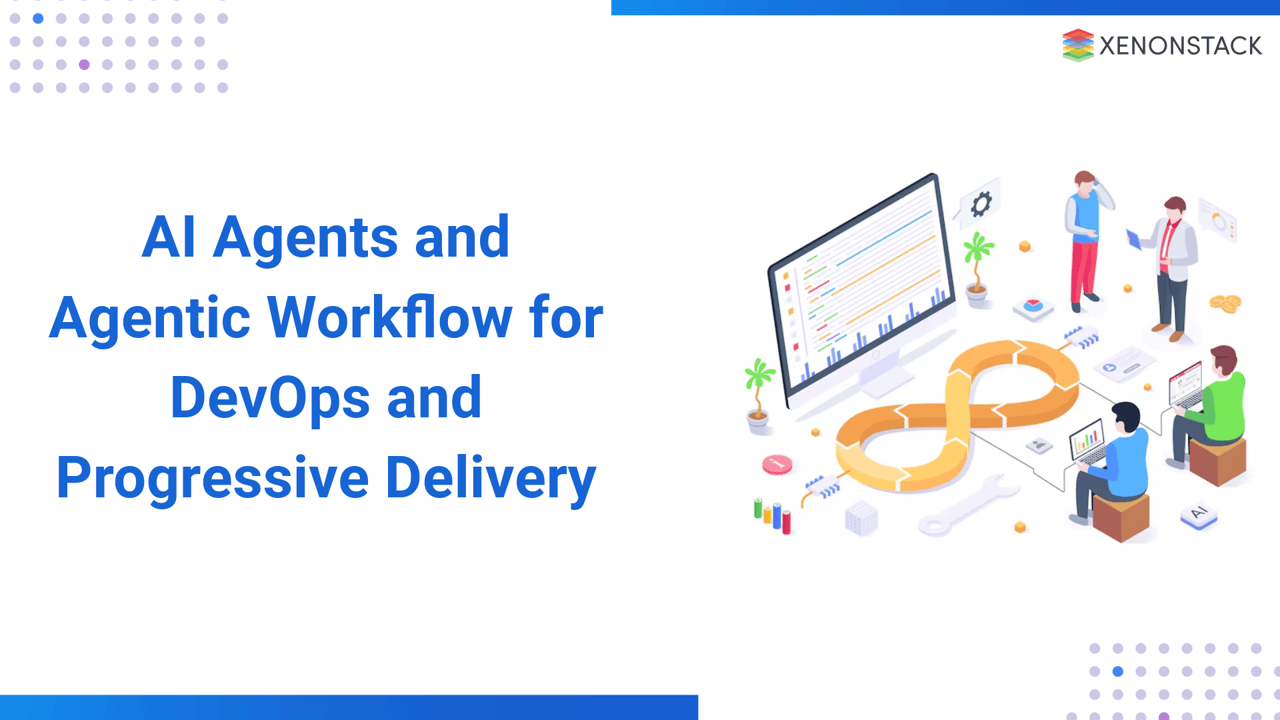
AI Agents is revolutionising industries in today’s fast-evolving world by driving rapid advancements in software development and DevOps. While traditional approaches focused heavily on innovation and efficiency, reliability remained paramount. However, this focus is shifting as AI becomes embedded within development workflows.
As software must keep up with growing demands for speed and quality, AI is crucial in enhancing processes, boosting efficiency, and reducing costs. These practices enable faster delivery cycles while maintaining high standards of quality. This blog outlines the key applications, benefits, and challenges to consider when assessing the impact of AI and intelligent agents on the DevOps lifecycle.
Integrating AI into the DevOps life cycle has decisively remade software development, delivery, and maintenance. Two AI-driven approaches lead the transformation: the traditional AI and the Agent AI. Both contribute to a unique feature in different aspects of DevOps. Below is a more critical view of how much two types of AI will change DevOps
Understanding DevOps Processes and Progressive Delivery
DevOps, which combines "development" and "operations," is a set of practices that enables faster delivery and release cycles for software development and IT operations. The DevOps Principles promote a culture of teamwork, automation, and continuous delivery. Progressive Delivery enables continuous deployments, enabling organizations to deliver software quickly and reliably.
DevOps refers to lifecycle stages described as attaining collaboration, iteration, automation, and feedback to supply qualitative software that can meet business and user needs.
Each of the following stages embraces something different: it contains planning, coding, testing, deployment, monitoring, and feedback. In this respect, the team would have had the opportunity to follow phases compatible with those tools and practices that optimise development and delivery workflows, making possible benefits like rapid time to market and great quality. It helps an organization build enabling environments for effective software development and deployment by integrating people, processes, and tools. Faster, better quality and reliability in bringing in more useful software products are needed for automatic deployments, failure detection, and remedies.
Fundamental Principles of DevOps and Continuous Delivery

Continuous Integration and Continuous Delivery (CI/CD)
Automates building, testing, and deployment to enable frequent updates and fast feedback

Collaboration and Communication
Fosters open communication among developers, operations, and all stakeholders for effective teamwork

Monitoring and Observability
Ensures continuous performance and infrastructure health checks to catch issues early

Infrastructure as Code (IaC)
Manages infrastructure via code for consistent configurations and automated setups
Current State of Infrastructure as Code (IaC)
IaC treats physical networks, infrastructure, and computers like software. This means provisioning and managing the cloud resources through code, bringing automation, precision, and repeatability to the process. IaC streamlines management by:
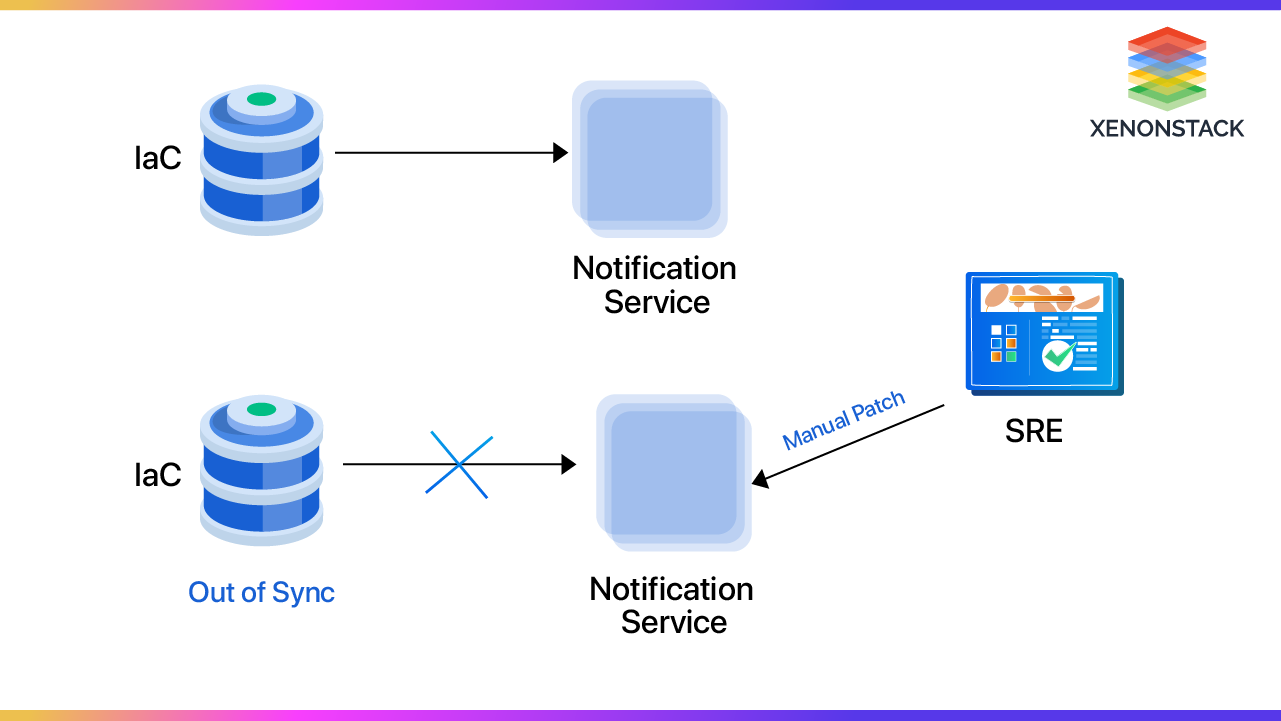
Fig 1: Current State of IAC
-
Minimizing Human Error: Manual configuration is error-prone. IaC scripts ensure consistency and eliminate the risk of human mistakes, leading to a more reliable and predictable network.
-
Enhancing Reproducibility: IaC scripts allow for easy replication of network configurations, facilitating rapid deployments and disaster recovery. This allows for faster rollouts of new services and quicker response times in case of outages.
-
Streamlining Scaling: IaC simplifies scaling network resources to meet changing demands. As network traffic fluctuates, infrastructure can be easily scaled up or down, ensuring optimal resource utilization.
Understanding Key Challenges with Traditional DevOps
Traditional DevOps has several not-trivial limitations that prevent full effectiveness in strategies' implementation and scaling.
The key challenges faced by classic DevOps are as follows:
-
Integration issues: Most of the tools and systems applied with DevOps have integration problems, assuming these were never meant to work together with the other.
-
Tool Overload: There are numerous DevOps tools. This can result in confusion and inefficiency if not managed or appropriately streamlined.
-
Tooling expenses: Acquiring and maintaining every DevOps tool could be pretty pricey.
-
Security risks: Irresponsible continuous integration and delivery can stay vulnerable. These methodologies can give the scope of risk in the software development life cycle.
-
Pains of Scaling: Most organizations feel the pain of scaling DevOps due to increasing loads and complexities. This might involve some steps in development and deployment; therefore, if not well thought out, it would be very complicated and full of errors in Database DevOps.
-
Lack of Clear Metrics: Without established metrics and KPIs, there is no apparent, straightforward way to measure the effectiveness of a DevOps practice.
-
Cultural Resistance to Change: According to DevOps, the mindsets and processes that are supposed to induce change will make traditionally working teams very resistant.
-
Lack of Skilled Personnel: Skilled personnel are in short supply. DevOps requires aggregating several different skills: coding, testing, and knowledge about operations.
Transforming DevOps with Agentic AI Integration
As the DevOps revolution going on deep inside organizations regarding software development, deployment, and maintenance is what DevOps essentially boils down to. The focus is shifting towards collaboration and continuous delivery to handle most modern software challenges. This means that DevOps was made to respond to the urgency of making it easier to deliver software cultural cooperation in the face of agile IT, which kept surging in complexity. However, these conventions started to be stretched with the rise of deployments made possible by distributed systems, microservices, and cloud-native architectures. By then, deep learning and neural networks powered automation and data-driven decisions in almost every industry vertical, setting the stage for an era of AI/ML and AI-powered DevOps.
Using Agentic AI in Infrastructure as Code
While IaC offers numerous advantages, crafting these scripts manually can be time-consuming and complex. SRE engineers must often possess specialized skill sets to write efficient and compliant IaC code. This is where Agentic AI steps in, revolutionizing the IaC development process.

Fig 2: Agentic AI In IAC
Benefits of Agentic AI in IaC
Effortless Script Generation: LLMs can analyse complex network requirements and architecture diagrams. This understanding allows them to generate accurate, efficient, and compliant IaC scripts automatically. This frees up valuable time for network engineers, allowing them to focus on more strategic tasks like network design and optimization.
Reduced Errors: Agentic AI tools enhance accuracy by maintaining consistency and following best practices in infrastructure, such as code (IaC) development. This reduces the likelihood of configuration errors resulting in network outages or security vulnerabilities.
Composite AI in DevOps: Traditional AI and AI agents
Traditional AI and AI agents form the core of this transformation. Traditional AI uses predictive analytics to maximize resource management and anticipate issues. It performs predictive analysis from the given historical data, signalling and becoming alteration-prone overall.
While AI agents automate some of the activities in a DevOps lifecycle, autonomous systems manage routine activities. Specifically, they are code reviews, automated testing, and deployment, all done with little human intervention. They ensure the timely execution of tasks consistently to meet the increasing demands of software development.
Traditional AI integrated with AI agents adds great synergy to DevOps. While the former brings insight and optimization, which was greatly missing from traditional AI, the latter enables key processes to be optimized, streamlined, and accelerated. Together, it results in maximized software delivery, improved reliability, and managing complexities in modern IT environments to make innovation and efficiency work for DevOps.
DevOps is the combination of practices and tools designed to increase an organization's ability to deliver applications and services faster than traditional software development processes.
How does Agentic AI help DevOps?
-
Autonomous Monitoring and Incident Response: Systems can now monitor themselves, detect anomalies, and resolve common issues without human intervention. This leads to faster incident resolution and reduces Mean Time to Recovery (MTTR) by triggering pre-approved actions or intelligently escalating critical issues.
-
Smart CI/CD Pipeline Management: Continuous integration and deployment pipelines can be orchestrated dynamically based on real-time conditions. Bottlenecks are automatically identified, and workflows are optimized or rerouted to maintain speed and reliability in software delivery.
-
Intelligent Infrastructure Provisioning: Infrastructure resources can be scaled up, down, or decommissioned based on usage trends and performance data. This ensures that systems are efficient and cost-effective without overprovisioning or resource waste.
-
Automated Code Quality and Security Checks: Code is analyzed in real-time for bugs, vulnerabilities, and compliance issues. Automated suggestions or fixes improve quality and reduce the burden on QA and security teams while maintaining speed.
-
Context-Aware Collaboration: During deployments or incidents, the right people are notified with summaries and actionable insights. This improves coordination between teams and ensures quicker resolution with fewer communication gaps.
-
Data-Driven Decision-Making: Insights generated from logs, metrics, and behaviour patterns help teams prioritize tasks, allocate resources effectively, and anticipate potential issues before they escalate.
-
Proactive Compliance and Governance: Policy checks, access control, and audit logging are handled automatically in the background. This ensures compliance is maintained consistently without manual oversight or last-minute scrambles.
-
Accelerated Feedback Loops: Feedback is delivered continuously throughout the development lifecycle, enabling rapid iteration, faster learning, and more confident releases.
Use Cases of Agentic AI-Powered DevOps LifeCycle
|
Use Cases
|
Description
|
|
Predictive Analytics for Resource Utilization |
AI can automatically adjust system resources based on demand and usage by predicting resource utilisation and avoiding overutilization. |
|
Incident Management Forecasting |
AI autonomously detects and responds to incidents by analyzing logs, spotting anomalies, and executing protocols, reducing human oversight and speeding up resolution. |
|
Performance Monitoring and Anomaly Detection |
AI continuously monitors for security threats, responding in real-time with defensive measures and alerts to protect against breaches. |
|
Automated Code review and quality assurance |
AI can automate code reviews for bugs, vulnerabilities, and standards compliance, providing immediate feedback to speed up the review process and enhance code quality. |
|
Security Threats |
AI continuously monitors for security threats, responding in real-time with defensive measures and alerts to prevent breaches. |
|
User Interaction and Support |
It can handle user support and queries, enhancing user experience and reducing the support workload on human teams. |
Case Study - Large Telecom Provider Streamlines Network Rollout with IaC
The telecommunications industry is evolving and accepting modern technologies in its services. Traditional, hardware-centric networks are giving way to the agility and power of Software-Defined Networking (SDN) and Network Function Virtualization (NFV). This shift unlocks a treasure of benefits for telecom operators, including:
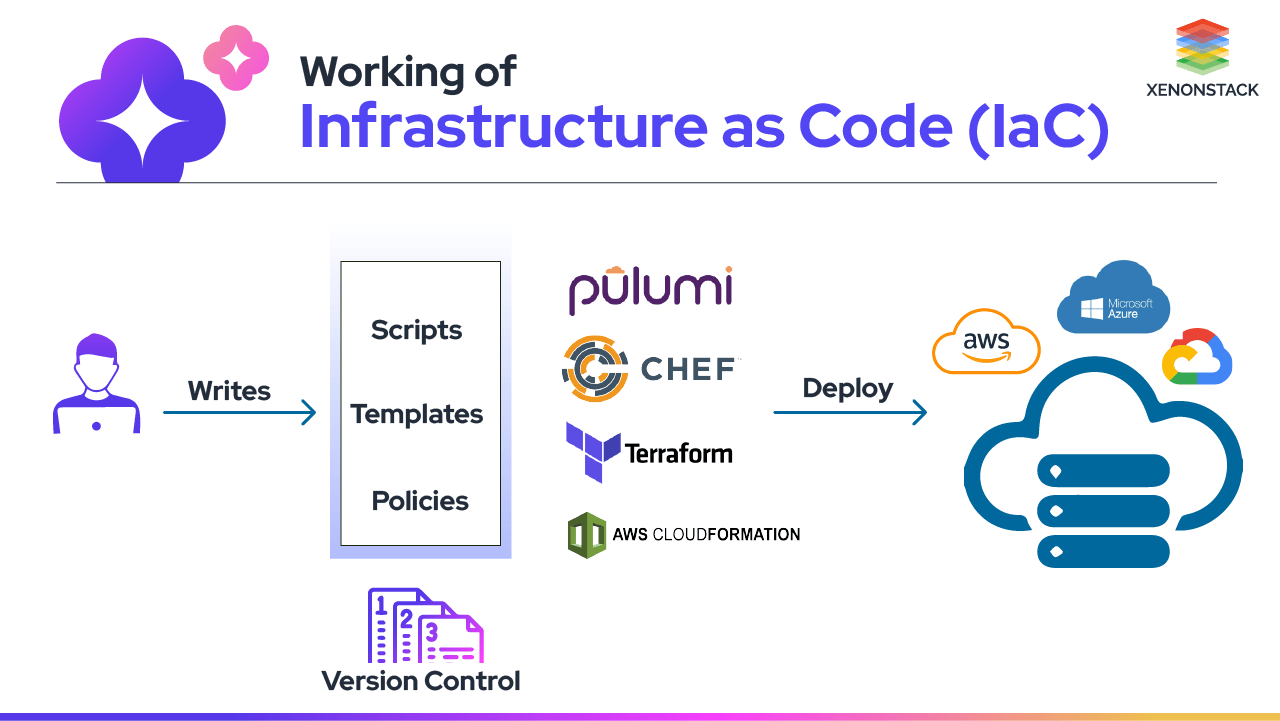
Fig 3: Working of IAC
-
Unparalleled Flexibility: SDN provides on-the-fly network configuration. It utilizes software, enabling swift adaptation to changing demands.
-
Enhanced Efficiency: NFV virtualizes network functions, maximizing resource utilization and reducing hardware dependency.
-
Reduced Operational Costs: Streamlined networks and automation lead to significant cost savings.
A major telecommunications company needed to deploy a new network service rapidly across multiple regions. Manual configuration of network devices was time-consuming and prone to errors.
The company implemented an IaC solution using tools like Terraform to overcome these issues. They created Infrastructure as Code (IaC) scripts to automate the setup of network devices such as routers, switches, and firewalls.
Benefits:
- Faster Deployments: IaC automation drastically reduced deployment times compared to manual configuration.
- Reduced Errors: Automated scripting minimized configuration errors, leading to a more reliable and predictable network.
- Improved Consistency: IaC ensured consistent configurations across all deployed network elements.
Agentic AI-Powered DevOps Lifecycle
An AI-driven DevOps lifecycle where AI infuses every step elevates the spectrum of efficiency, quality, and responsiveness. Let’s see how AI transforms the different steps within the DevOps life cycle:

Fig 4: DevOps Lifecycle
Planning
-
AI Insights: AI Insights leverages historical data to make practical recommendations for steps toward an outcome, preparation for oncoming challenges, and required resources.
Development
-
Automated Code Review: AI agents can be used for code review tools to automatically detect bugs and security vulnerabilities, ensure standards and compliance, and make recommendations for quality improvement.
-
Predictive Coding Assistance: AI can enable predictive coding suggestions and autocompletes from patterns, hence speeding up the development provided by AI.
Continuous Integration (CI)
-
Automatic Smart Testing: AI can improve testing by detecting critical cases, predicting failure points, and executing faster to get quick feedback.
-
Anomaly Detection: AI will monitor violations and trigger alerts in cases of abnormalities before they worsen.
Continuous Delivery (CD)
-
Intelligent Automation: Improve testing by surfacing critical cases, predicting failure points, and executing faster to get quick feedback
-
Release Management: AI will monitor violations and trigger alerts in cases of abnormalities before they worsen.
Monitoring and Operations
-
Predictive Analytics: AI evaluates historical data to predict possible failures and performance degradation to manage proactively.
-
Real-Time Monitoring: AI agents will monitor the systems against abnormal behaviour and security threats through real-time alerts and responses.
Incident Management
-
Advanced Threat Detection: AI continuously analyzes behaviour patterns to search for security threats and acts on this intelligence in real-time.
-
Automated Incident Response: AI automates incident responses using set protocols, speeding up response times and reducing manual effort.
Feedback and Improvement
-
Performance Analysis: AI checks performance metrics and user feedback for improvement points.
-
Continuous Learning: AI learns the best ways of streamlining processes and future operations through past issues.
How Continuous Intelligence Enhances DevOps?
As DevOps generates vast log data, Continuous Intelligence (CI) supports real-time analytics and visibility across CI/CD pipelines, aiding faster issue resolution and more robust incident management. Here’s how CI impacts software delivery and incident management:
- Reduced Outage Time: Unified monitoring and log analytics enhance decision-making and accelerate recovery, improving software resilience.
- Faster Release Cycles: Real-time insights streamline release processes by identifying bottlenecks, monitoring deployments, and filtering ineffective processes.
- Enhanced Transparency: Real-time visibility allows teams to address delivery pipeline issues while enabling stakeholders to track project progress.
- Improved Software Delivery: CI facilitates rapid feedback loops, encouraging fast innovation and continuous improvements to meet customer needs.
- Proactive Detection: Analyzing past data proactively helps detect potential incidents before they occur.
- Faster Value Delivery: Automating data analysis translates data into actionable insights, strengthening DevOps’ capacity to manage delivery and incident responses.
- Customer-Centric Approach: CI enables continuous monitoring of changes and pipeline health, aligning delivery with evolving customer expectations.
Adoption of Agentic AI in Infrastructure as Code
The most convenient option currently for adopting IaC is to invest in an LLM trained on Programming Languages and Frameworks. If the Service or Model supports APIs and integrates well in your pipeline, it should be your first step in Modernising IaC.
Use Existing Agentic AI Tools
-
OpenAI Codex, based on GPT-3, is a large language model trained on diverse code sources. It can generate code snippets based on natural language descriptions in multiple programming languages. It is integrated into various development environments and tools.
-
GitHub CoPilot is an AI-powered code completion tool developed by GitHub in collaboration with OpenAI. It is built on the GPT-3 language model. It is designed to assist developers in writing code more efficiently by providing context-aware code suggestions directly within their integrated development environment (IDE). It can be used to Generate IaC.
-
Devin AI claims to be an AI Software Engineer Capable of writing IaC that can currently be deployed on limited Cloud Providers. Still, it promises to deploy on all leading cloud providers in the future.
-
Claude can read and analyse popular programming languages, including Python, JavaScript, SQL, and CSS. This capability, combined with its impressive input capacity of up to 100k tokens, allows users to upload their entire code for debugging. It can also write IaC in popular Frameworks.
Challenges and Considerations of Agentic AI
While Agentic AI brings transformative potential to DevOps, its adoption is complex. Several technical, organizational, and ethical factors must be carefully addressed to ensure successful implementation.
Data and Training Considerations
-
Ensuring Data Quality: Effective decision-making by autonomous agents depends on access to accurate, relevant, and well-structured data. Poor data quality can limit the system's reliability and outcomes.
-
Managing Training Time: Training models that power Agentic AI can be resource-intensive and time-consuming. This may impact timelines, especially when custom models are required for specific DevOps environments.
Security and Compliance Challenges
-
Addressing Security Risks: Actions taken autonomously, such as code changes or infrastructure modifications, may inadvertently introduce vulnerabilities. Thorough testing and oversight are necessary to maintain secure operations.
-
Navigating Data Privacy: Agentic systems often rely on analyzing operational and user data, which can raise privacy and regulatory concerns. Proper data governance and anonymization practices are essential.
Human Oversight and Ethical Concerns
-
Mitigating Bias and Ethical Issues: Biases in training data can influence how agents make decisions, leading to unintended consequences. Human oversight is vital to maintain fairness and ethical integrity in automated actions.
-
Maintaining Quality Assurance: While AI agents can handle routine tasks, human judgment is still crucial for validating outcomes, handling edge cases, and making high-stakes decisions.
Adoption and Integration Challenges
-
Integrating Agentic AI: Incorporating autonomous agents into existing DevOps workflows may require significant process and tool redesigns. Alignment between teams, tools, and new capabilities is critical.
-
Addressing Skill Gaps: Leveraging Agentic AI requires upskilling teams in AI literacy, automation strategies, and system monitoring. Without the right expertise, adoption can stall or result in misconfiguration.
Evolution of DevOps Culture and Practices
-
Adopting Agentic AI may challenge traditional DevOps roles and responsibilities. It requires a shift toward more strategic oversight and less manual intervention. Teams must evolve culturally and operationally to work effectively alongside autonomous systems.
Unleash the Real Value & Build Your Agent
The Current State of Internal Developer Platforms does not use AI. Still, it integrates software delivery and supply chain for more automation, giving developers a seamless experience starting a project using fixed project templates and integrating all the toolchains.
Your Enterprise's Code should remain private, and building your AI Agents by using existing ones keeps your Enterprise's algorithms and Code Private.
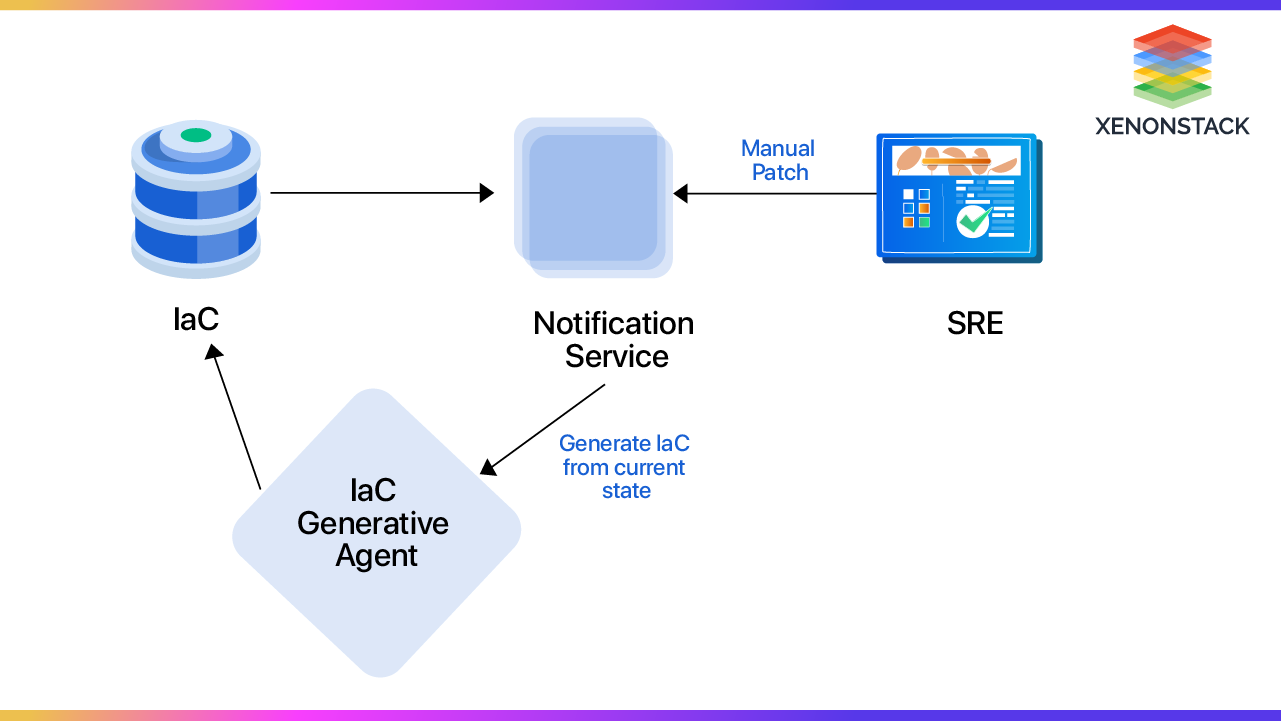
Fig 5: How to Build Agents in IAC
Fine-tune your Generative Agents according to your enterprise's ecosystem, as every enterprise is unique.
Future of a Developer Platform & Platform Engineering Revolves around AI agents for IaC.
|
IaC |
Past |
Now |
Future |
|
Tracking State of Deployed Infrastructure |
Stateless |
Stateful |
Infrastructure Tracked |
|
IaC Drift |
Wide, Unmeasured |
Narrowed, Measured |
No Drift |
|
Coverage |
Small |
Large Part |
Full Coverage |
|
Test Cases |
Not Available |
Partial |
Full |
|
Maintainability |
Error Prone, Heterogenous Frameworks |
Standard Frameworks, Less Painful Maintenance |
Maintenance Free |
|
Human Intervention |
IaC adoption was partial; hence, human deployments were performed. |
Zero Touch Deployments were Harder |
Agentic AI doing Zero Touch Deployments |
The table compares Infrastructure as Code (IaC) across past, present, and future states, focusing on various aspects such as tracking the state of deployed infrastructure, IaC drift, coverage, test cases, maintainability, and human intervention.
AI Agents and Agentic Workflows in DevOps and SRE
Thus, AI in the DevOps life cycle has further integrated Software Development into the evolutionary cycle. If traditionally, AI-based Predictive Analytics optimized resources and foresaw further problems, today, these important functions, from code reviews to incident response, are mainly performed by artificial agents.
The twin approach mainly smoothens the planning, development, and monitoring processes into an unprecedentedly efficient and reliable one. In other words, AI raises the bar on DevOps automation and insight to completely new levels, enabling ways to deliver software much faster, safer, and lower costs. Moreover, new AI technologies are bound to further open doors for substantive innovations, with equal or greater spikes in DevOps productivity and responsiveness when faced with changes.
Next Steps with AI Agents and Agentic Workflow
Talk to our experts about implementing AI agents and agentic workflows in DevOps and progressive delivery. Learn how industries and departments leverage these technologies to automate and optimize software development processes, enhance collaboration, and improve delivery speed and efficiency.


